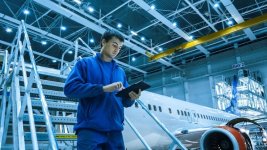The aerospace industry demands unmatched precision, safety, and innovation. Engineering consultants provide the expertise necessary to design, integrate, and optimize complex aircraft systems. By applying advanced techniques in system architecture, software development, and data analysis, consultants ensure aircraft perform reliably under all conditions. Aerospace systems engineering is at the heart of these services, allowing organizations to transform ambitious concepts into functional, safe, and efficient aircraft. Through simulation, telemetry, and flight testing, consultants help organizations mitigate risk and enhance performance.
Core Services Provided by Aerospace Engineering Consultants
Aerospace engineering consultants offer specialized support across multiple disciplines, ensuring seamless integration and optimized performance of aircraft systems.Aircraft Systems Architecture
Consultants assist with designing aircraft systems from concept to implementation. This includes defining system requirements, ensuring component compatibility, and optimizing subsystems for performance and safety. A well-planned architecture reduces errors, supports operational efficiency, and simplifies regulatory compliance.Software Development and Integration
Modern aircraft rely heavily on embedded software for flight controls, navigation, and mission-critical operations. Consultants develop, test, and integrate software solutions to meet aviation standards. Rigorous verification processes ensure reliability, while automation tools streamline testing, reducing errors and development timelines.Simulation and Modeling
Simulation is essential for safe and cost-effective testing. Consultants use software-in-the-loop (SIL) and hardware-in-the-loop (HIL) simulations to replicate real flight conditions. These tests help identify potential issues early, improve system reliability, and provide actionable data for further optimization.Data Acquisition and Analysis
Accurate data collection is critical to improving system performance. Consultants implement instrumentation and telemetry systems to gather real-time flight data. Analyzing this data allows engineers to optimize systems, improve efficiency, and maintain safety standards across all operations.Avionics Systems Integration
Integration of avionics systems is key to aircraft functionality. A proficient avionics systems engineer ensures that sensors, flight controls, communication systems, and displays work together seamlessly. Proper integration enhances situational awareness, reduces errors, and increases operational safety.Flight Test Planning and Execution
Flight testing is a vital step in validating aircraft design and performance. Consultants provide comprehensive support in planning, executing, and analyzing flight tests. This ensures that any issues are identified early, regulatory compliance is met, and performance goals are achieved.Flight Simulation Solutions
Advanced simulators provide a safe and controlled environment for training and system testing. Consultants design flight simulators that replicate real-world conditions, allowing engineers to test avionics, flight controls, and software without the risks associated with actual flight.Certification and Regulatory Support
Navigating aviation regulations is complex and essential for successful operations. Consultants guide organizations through FAA, EASA, and other international standards, ensuring compliance while reducing project delays. Their expertise in regulatory requirements accelerates certification and ensures operational readiness.Benefits of Hiring an Aerospace Engineering Consultant
Partnering with an aerospace engineering consultant provides specialized knowledge that improves project outcomes and reduces risk. Key advantages include:- Expert Technical Support: Access to professionals skilled in flight-critical systems, avionics, and embedded software.
- Risk Mitigation: Simulation, telemetry, and rigorous testing reduce the chance of system failures.
- Cost and Time Efficiency: Integrated solutions streamline development and reduce overhead.
- Flexibility: Consultants can tailor support to startups, OEMs, and defense organizations.
- Enhanced Safety and Reliability: Data-driven insights and thorough testing ensure dependable operations.
Selecting the Right Aerospace Consultant
When choosing a consultant, organizations should evaluate:- Experience in aircraft systems design, avionics, and embedded software integration.
- Expertise in flight testing, simulation, and telemetry.
- Analytical skills for data-driven optimization of performance and safety.
- Ability to collaborate effectively with internal teams and adapt to changing project needs.
- Proven track record in regulatory compliance and certification support.
Emerging Trends in Aerospace Consulting
The aerospace sector is rapidly advancing, and consultants play a key role in implementing innovative technologies:- Autonomous Systems: Development and testing of UAVs and autonomous aircraft.
- Sustainable Propulsion: Integration of hybrid and electric propulsion systems.
- Advanced Materials: Guidance on lightweight, high-strength materials for improved performance.
- Artificial Intelligence: AI-driven predictive maintenance, system monitoring, and optimization.

